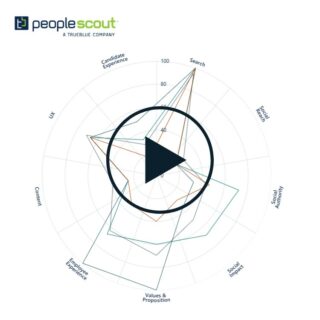Earlier this year, the governor of Massachusetts signed into law An Act Relative to Criminal Justice Reform that makes several modifications to the state’s “ban the box” law.
The law, which goes into effect in October 2018, adds additional restrictions about which criminal convictions an employer can consider and how employers can consider other convictions.
Under the new law, employers cannot ask applicants about misdemeanor convictions where the date of that conviction or the completion of incarceration occurred three years before the date the person applied, unless the person has been convicted of another offense in the past three years.
Additionally, employers cannot ask applicants about criminal records that have been sealed or expunged. Any request for criminal record information must also include this statement: “An applicant for employment with a record expunged pursuant to section 100F, section 100G, section 100H or section 100K of chapter 276 of the General Laws may answer ‘no record’ with respect to an inquiry herein relative to prior arrests, criminal court appearances or convictions. An applicant for employment with a record expunged pursuant to section 100F, section 100G, section 100H or section 100K of chapter 276 of the General Laws may answer ‘no record’ to an inquiry herein relative to prior arrests, criminal court appearances, juvenile court appearances, adjudications or convictions.”
Any employers who hire in Massachusetts should review their current practices with an attorney. With the growing popularity of “ban the box” laws and the variance between jurisdictions, employers should closely watch any developments and adjust their policies accordingly.
You can read our previous blog post on “ban the box” laws below.
California is the latest state to enact a “ban the box” law. The governor recently signed a bill that prevents private employers from asking about applicants’ criminal conviction histories on the employment application. It went into effect on January 1, 2018.
“Ban the box” refers to the box on applications requiring applicants to reveal their criminal history. The law requires employers with more than five employees to not request or consider a candidate’s conviction history until a conditional offer has been made. California already had a “ban the box” law on the record that applies to state agencies, cities and counties. This law expands that to the private sector.
More than 150 cities and 29 states have enacted some form of a ban the box law. The laws are intended to push a background check later into the hiring process so that employers consider an applicant’s qualifications before their criminal history.
While California’s law does not require employers to justify or explain their decision not to employ someone based on their criminal history, New York City’s law requires employers to justify rescinding a conditional offer based on criminal history. Different cities, states and counties have different requirements as to when employers can request a criminal history or run a background check and what they can do with that information. If an employer runs a background check after a conditional offer has been made, care must be taken before any adverse decision is made as there are strict regulations governing this process.
With the growing popularity of ban the box laws, employers need to be prepared for the patchwork of legislation, and they cannot rely on a one-size-fits-all approach.
If you want to read more about compliance-related issues, check out our other Compliance Corner blog posts on predictive scheduling, salary history, paid sick leave and New York City’s Freelance Isn’t Free law.
Compliance Corner is a feature on the PeopleScout blog. At least once a month, we’ll be featuring a compliance issue that’s in the news or on our minds. Understanding the patchwork of labor laws across the world is complicated, but it’s part of what we do best. If you have questions on the compliance issue discussed in this post, please reach out to your PeopleScout account team or contact us at marketing@peoplescout.com.



